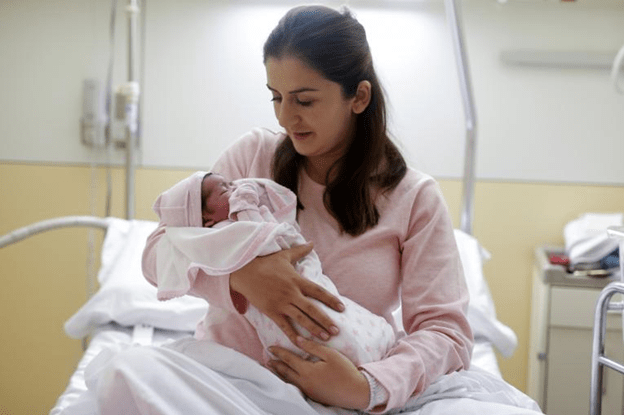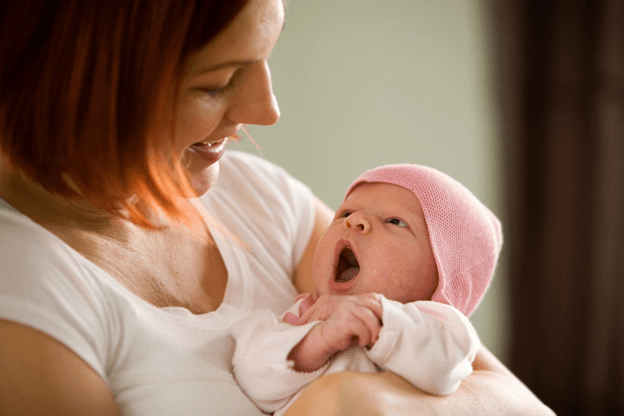Are you a Mother-to-be? Here are some Super-useful Tips for a Safer Pregnancy
Being pregnant is a joyous time that frequently motivates women to lead healthier lifestyles and, if necessary, strive for healthy body weight. Here are some suggestions for making your nutrition and exercise habits better both throughout pregnancy and after giving birth.
These suggestions can be helpful even if you are not pregnant but are considering becoming a parent. Making adjustments now will allow you to adapt to new lifestyle habits. You’ll provide your child with the finest possible start in life and set an example of good health for the entire family. Here are some super-useful tips for a safer pregnancy.
Here are some Super-useful Tips for a Safer Pregnancy:
- Maintain a Healthy Weight
Pregnancy weight gain that is healthful for the baby helps it develop into a healthy size. However, gaining too much or too little weight can have major negative health effects on both you and your unborn child.
Expert opinion suggests gaining too much weight during pregnancy increases your risk of getting gestational diabetes, pregnancy-related diabetes, as well as pregnancy-related high blood pressure. You are also more likely to develop type 2 diabetes and high blood pressure later in life as a result. Your risk of developing health issues may be increased if you are obese or overweight when you become pregnant. Additionally, you might be more likely to undergo a C-section.
Putting on a healthy amount of weight makes pregnancy and delivery simpler. It might also make it simpler for you to regain a healthy weight after giving birth. According to research, gaining the proper amount of weight during pregnancy can also reduce the likelihood that you or your unborn child will develop obesity and other disorders related to weight later in life.
- Ideal weight during pregnancy
The amount of weight you should gain during pregnancy depends on your pre-pregnancy body mass index (BMI). A BMI calculation compares your weight to your height. Your BMI can be determined online using a formula NIH.
It’s crucial to acquire weight gradually. The dated misconception that you’re “eating for two” is untrue. Your infant is only a walnut’s size throughout the first three months and doesn’t require many extra calories. It is encouraged to acquire weight at the following rate:
- 1-4 pounds overall in the first three months
- Every month from four months until delivery, 2 to 4 pounds.
If you’re pregnant then these super-useful tips for a safer pregnancy are for you, avoid attempting to lose weight. To develop healthily, your kid needs to be exposed to nutritious foods and low-calorie beverages, especially water. Some women may have a slight weight loss at the beginning of their pregnancy. If it occurs to you, consult a healthcare provider.
- Follow the Correct Diet
You and your baby may grow the right amount of weight if you eat healthy foods, low-calorie drinks (especially water), and the right quantity of calories.
Your calorie and food requirements depend on a variety of factors, including your age, weight before pregnancy, and the rate at which you put on weight. The Centers for Disease Control and Prevention (CDC) states that if you are at a healthy weight, you won’t require any more calories during your first trimester, approximately 340 extra calories per day during your second trimester, and approximately 450 extra calories per day during your third trimester. Additionally, you might not require extra calories in the third trimester of your pregnancy.
Discuss your weight increase with a member of your medical team. He or she might suggest you eat extra calories if you aren’t gaining the weight you need. You might need to reduce your calorie intake if you’re putting on too much weight. There are various wants for every lady. Your needs will also vary depending on whether you were obese, overweight, or underweight prior to being pregnant, as well as whether you’re expecting more than one child.
- Ideal food and beverages to consume during pregnancy
Super-useful tips for a safer pregnancy, Nutrient-dense foods, and drinks are part of a healthy pregnancy diet. The American Dietary Guidelines, 2020–2025 recommend consuming these foods and beverages daily.
- Fruits and vegetables, which supply fiber and vitamins.
- Muesli, whole-grain bread, and brown rice are examples of whole grains that supply fiber, B vitamins, and other essential minerals.
- Protein from healthy sources, such as beans and peas, eggs, lean meats, seafood that is low in mercury (up to 12 ounces per week), and unsalted nuts and seeds, if you can tolerate them and aren’t allergic to them.
- Fat-free or low-fat milk and milk products as well as non-dairy soy, almond, rice, or other drinks with added calcium and vitamin D.
Does your diet meet the standards? How might your habits be made better? For the morning, try having fruit like berries or bananas with hot or cold cereal; for lunch, have a salad with beans, tofu, or another non-meat protein; and for supper, have a lean dish of meat, poultry, fish, or other seafood with steamed veggies. Consider trying some novel, healthy foods and drinks. Share your thoughts with your healthcare practitioner in writing.
- Healthy vegetarian diet
Healthy pregnant eating can include a vegetarian diet. To ensure you’re getting enough calcium, iron, protein, vitamin B12, vitamin D, and other essential nutrients, think about the quality of your diet and see a healthcare provider. Additionally, your doctor could advise you to take vitamins and minerals to help you meet your needs.
- Special nutrition needs:
You require additional vitamins and minerals, such as folate, iron, and calcium, during pregnancy.
It’s critical to get the right amount of folate. The B vitamin folate, often known as folic acid, may aid in the reduction of birth abnormalities. In addition to the folate you naturally consume from foods and beverages, you also need 400 mcg of folate daily from supplements or fortified foods before becoming pregnant. 600 mcg are necessary throughout pregnancy. You require 500 mcg of folate each day during nursing. Orange juice, strawberries, spinach, broccoli, beans, fortified bread, and fortified low-sugar breakfast cereals are among the foods high in folate. Each serving of these foods could even contain 100% of the recommended daily intake of folic acid.
- Foods/drinks to avoid:
If you consume certain foods and beverages while pregnant, your baby could suffer. In super-useful tips for a safer pregnancy, these are some things you should stay away from.
- Alcohol: Avoid consuming alcoholic beverages like wine, beer, or hard liquor.
- Caffeine: Enjoy decaffeinated coffee, tea, non-sugar-sweetened beverages, or water with a squeeze of fresh juice. Avoid diet beverages, and keep your daily caffeine intake to under 200 mg, or roughly 12 ounces of coffee.
- Fish that might contain a lot of mercury: Mercury can accumulate in fish and harm fetuses. 6 ounces of white (albacore) tuna maximum each week. King mackerel, marlin, orange roughy, shark, swordfish, or tilefish should not be consumed.
- Foods that may cause illness in you or your baby: (from bacteria like Listeria or E. coli, viruses, parasites, etc.). Avoid deli salads, raw cookie dough, undercooked meats, eggs, and seafood, as well as soft cheeses made from unpasteurized or raw milk. Picking and cooking lunch meats, egg dishes, and meat spreads should be done with care. See additional pregnant food safety advice.
- Anything that is not food: Some expectant women could want substances other than food, such as paint chips, clay, ashes, or laundry starch. This can indicate that you’re not consuming enough of a certain nutrient. If you have a craving for something other than food, consult a healthcare expert. You can receive the appropriate amount of nutrients with their assistance.
- Be Physically Active
Super-useful tips for a safer pregnancy, Almost all pregnant women should engage in physical activity. There is some evidence to suggest that physical activity may shorten labor and postpartum recovery times, decrease the likelihood of needing a cesarean section (or C-section), and minimize the risk of preeclampsia (high blood pressure during pregnancy).
You might not need to alter your workout routine if you were active before getting pregnant. Consult a medical practitioner about how to modify your fitness routine while expecting a child. If you have never exercised before, don’t have childcare for your other children, or are unsure of what to do, becoming physically active might be challenging. Keep reading for advice on overcoming these obstacles and engaging in physical activity.
- How much physical activity is ideal?
The majority of women need the same amount of exercise that they did prior to being pregnant, according to current recommendations. Aim for 150 minutes or more per week of moderate-intensity aerobic exercise. Exercises that employ major muscular groups, such as those in the back, chest, and legs, are referred to as aerobic exercises or cardio exercises. Exercise that involves aerobics is brisk walking.
How can you tell if you are engaging in aerobic activity of moderate intensity? To find out, take the “talk test”. It is considered a moderate intensity if you are breathing heavily but can still easily carry on a conversation—but not sing.
Vigorous-intensity exercise is defined as the ability to speak only a few words before halting to take a breath. It is probably safe for you to continue engaging in a vigorous-intensity aerobic activity or being physically active during your pregnancy if you had a habit of doing so before becoming pregnant.
- Staying active while being pregnant
You can exercise while pregnant even if you have never done it before. Here are a few pieces of super-useful tips for a safer pregnancy.
- Take a family member or acquaintance for a stroll around your neighborhood, in a park nearby, or within a mall. If you already have kids, bring them along and turn them into a family trip.
- If you spend most of the day sitting, get up and move about at least once per hour. Move around while watching TV or working on the computer. Even something as basic as a steady walk can be beneficial.
- Plan to stay active while expecting. Make a list of the things you want to do, like go for a stroll or attend a prenatal yoga session.
- Do not become complacent after the Baby’s Birth
If you try to steadily get back to a healthy weight after giving birth, your health can improve. The inability to lose your “baby weight” could result in obesity or being overweight later in life. Regaining your healthy weight gradually may reduce your risk of developing diabetes, heart disease, and other weight-related conditions.
After your baby is born, adopting healthy habits like proper sleep, regular exercise, and good food may help you regain your energy and return to a healthy weight.
Once your child is born,
- Consume food and drink to get the calories you require.
- Your general health will continue to benefit from regular exercise. Physical activity of a moderate level will improve your fitness and mood.
Additionally super-useful tips for a safer pregnancy, it doesn’t appear that physical activity has a negative impact on the amount of breast milk produced, what it contains, or how much the baby grows.
In conclusion
Super-useful tips for a safer pregnancy, pregnancy is an exciting and life-changing experience for any woman, but it also comes with its fair share of challenges and concerns. However, with the right knowledge and preparation, you can ensure a safer and healthier pregnancy for both you and your baby. The super-useful tips for a safer pregnancy discussed in this article are just a starting point for mothers-to-be. It is essential to consult with your healthcare provider regularly and follow their advice to ensure a successful pregnancy.
Remember, every woman’s pregnancy is unique, and what works for one person may not work for another. Therefore, it is crucial to listen to your body and be aware of any changes or symptoms that may require medical attention.
Furthermore, a healthy pregnancy goes beyond physical health. Taking care of your mental and emotional well-being is equally important. Seek support from loved ones, join prenatal classes, and practice self-care regularly to reduce stress and anxiety.
In summary, being a mother-to-be is an exciting journey, and with the right mindset and preparation, you can make it a safer and healthier experience. Remember to prioritize your health and seek help when needed, and enjoy this beautiful phase of life. These are the first and most important super-useful tips for a safer pregnancy.


